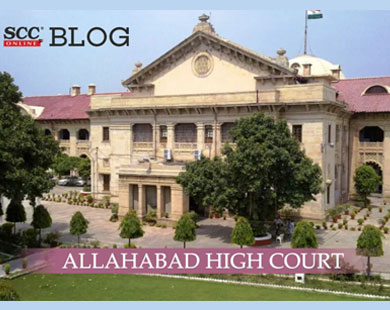Allahabad High Court: In an application filed by Journalist Siddique Kappan under Section 482 of Code of Criminal procedure, 1973 (‘CrPC') to quash the order passed by the Special Judge, (NIA) for the offences under sections 153-A, 295-A ,120-B of the Penal Code, 1860 (‘IPC') and Sections 17 and 18 of Unlawful Activities (Prevention) Act, 1967 (‘UAPA') and Sections
Siddique Kappan prayed to decide his discharge application on merit, after affording opportunity of hearing.
The Court said that it is evident that an application for discharge was moved by Siddique Kappan on 19-12-2022 and from perusal of the order dated 19-12-2022, by virtue of which charges were framed, it reveals that the discharge application was neither accepted nor rejected by the Court.
Further, it said that the noting on the order sheet discloses that the counsel for Siddique Kappan was present in the court, but it prima facie seems that he was not heard. The Court has also noticed the fact that an Amicus Curiae was appointed on 19-12-2022 itself, though there was no occasion for such appointment.
The Court took note of Section 227 of CrPC and said that it mandates that the Trial Court shall consider whether there is sufficient ground for proceeding against the accused or not and if Trial Court reaches to the conclusion that there is no sufficient ground, the accused shall be discharged. Thus, it is crystal clear that while passing an order under Section 227 of CrPC, the Trial Court shall consider:
-
Record of the case and documents submitted therewith;
-
Submissions of the accused; and
-
Submissions of the prosecution.
The Court said that it is a settled law that even after such considerations, if two views are possible, and if one of them gives rise to the suspicion, which is distinguished from grave suspicion, the Trial Judge is empowered to discharge the accused without going into the question as to whether a case for trial has been made out by the prosecution or not.
The Court opined that after the application of judicial mind on discharge, the Trial Judge shall enter the next proceeding i.e., framing of the charge as it is prima-facie clear from the wordings of Section 228 CrPC. The procedure of Section 227 CrPC is of much importance and cannot be skipped by the Trial Court. The intent of the legislature is very clear that the procedure prescribed in Section 227 of CrPC for discharge of the accused is in fact safeguard and rider so that a person who has been alleged to commit an offence, may not be harassed for facing trial proceedings. Therefore, the application of mind as well as assigning reasons for passing the order under section 227 of CrPC is of much importance, which must be taken care of by the Trial Court.
Further, the Court said that it is also not incumbent upon the accused that he must have moved an application for discharge. Even in a situation that there was no application for discharge moved, then it is incumbent upon the Trial Court to decide it that whether there is sufficient material available against the accused to frame charges, but opportunity of hearing to the accused at this stage is an essential condition.
The Court after examining the impugned order, said that it has been recorded by the Trial Court that no one is present to press the application filed under section 227 of CrPC but, it is noted by the counsel for Siddique Kappan that he was present in the Court, and he was not heard.
Concerning the appointment of an Amicus Curiae, the Court said that as per provisions of Section 304 of CrPC, there are two conditions, wherein an amicus curiae can be appointed and so far as the present case is concerned, prima-facie, there seems to be no such conditions prevalent. While appointing the amicus-curiae, the Trial Court did not mention the exigency as is envisaged in Section 304 of CrPC and no judicial mind has been applied while appointing him.
[Siddique Kappan v. State of UP, 2023 SCC OnLine All 21, order dated 16-01-2023]
Advocates who appeared in this case :
Counsel for Applicant: – Advocate Ishan Baghel,Mohd. Khalid
Counsel for Opposite Party: – Government Advocate
*Apoorva Goel, Editorial Assisstant has reported this brief.







